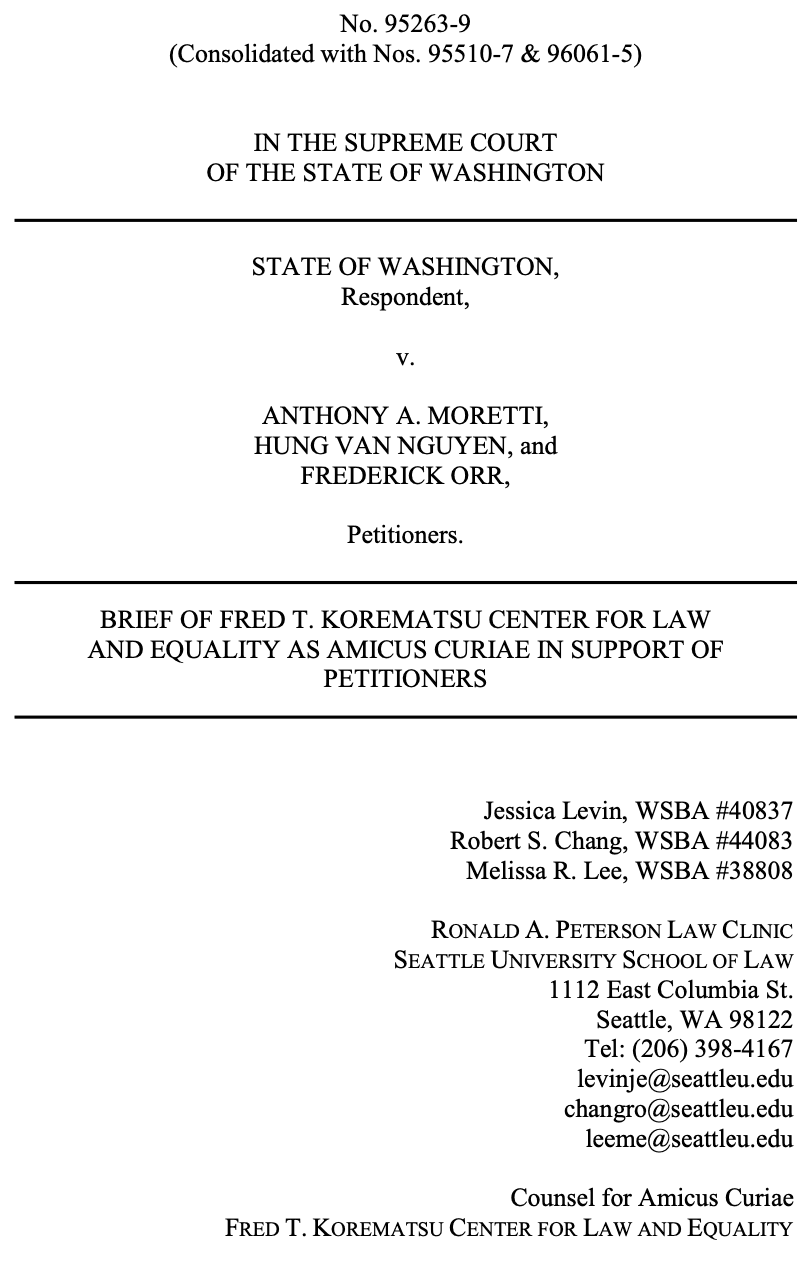
Summary of Argument
But for strikes committed when they were between 18 and 21 years old, Mr. Moretti, Mr. Nguyen, and Mr. Orr would not be serving life without parole sentences under the Persistent Offender Accountability Act (POAA). This Court could accept the artificial boundary of the eighteenth birthday and decide that because the strike offenses occurred when Mr. Moretti, Mr. Nguyen, and Mr. Orr were over 18 years of age, these individuals must serve life without parole—the harshest punishment under Washington’s criminal law. Or, this Court could again embrace emerging science to apply justice and recognize, as it did in State v. O’Dell, that the intrinsic nature of youth extends beyond the eighteenth birthday. 183 Wn.2d 680, 358 P.3d 359 (2015). Because at least one of the strike offenses occurred when they were less culpable and therefore “less deserving of the most severe punishments,” Graham v. Florida, 560 U.S. 48, 58, 130 S. Ct. 2011, 176 L. Ed. 2d 825 (2010), Petitioners ask the Court to determine that their punishment is disproportionate and therefore cruel, in violation of article I, section 14.
Amicus presents three points highlighting that under article I, section 14, a categorical bar of youthful strikes—strike offenses committed between the ages of 18 and 21—is doctrinally sound. First, courts and legislatures around the nation have responded to a growing body of science that the mitigating qualities of youth extend to at least 21 years old, and this trend should inform the Court’s understanding of the categorical bar analysis. Second, just as individual proportionality review of persistent offender punishment under article I, section 14 encompasses all strikes, so must categorical proportionality review of persistent offender punishment—making salient Petitioners’ youth at the time of each strike. Third, characterization of recidivist schemes as punishment for only the last strike is inapposite in the context of proportionality review. Amicus discusses an inconsistency within this Court’s article I, section 14 persistent offender proportionality jurisprudence that reviews all strikes, yet characterizes recidivist schemes as punishment for only the last strike by citing State v. Lee, 87 Wn.2d 932, 558 P.2d 236 (1976). The cases on which Lee relies for this rule are not grounded in proportionality analysis, and are instead decisions upholding early habitual offender statutes against challenges based on double jeopardy, due process, and ex post facto protections.